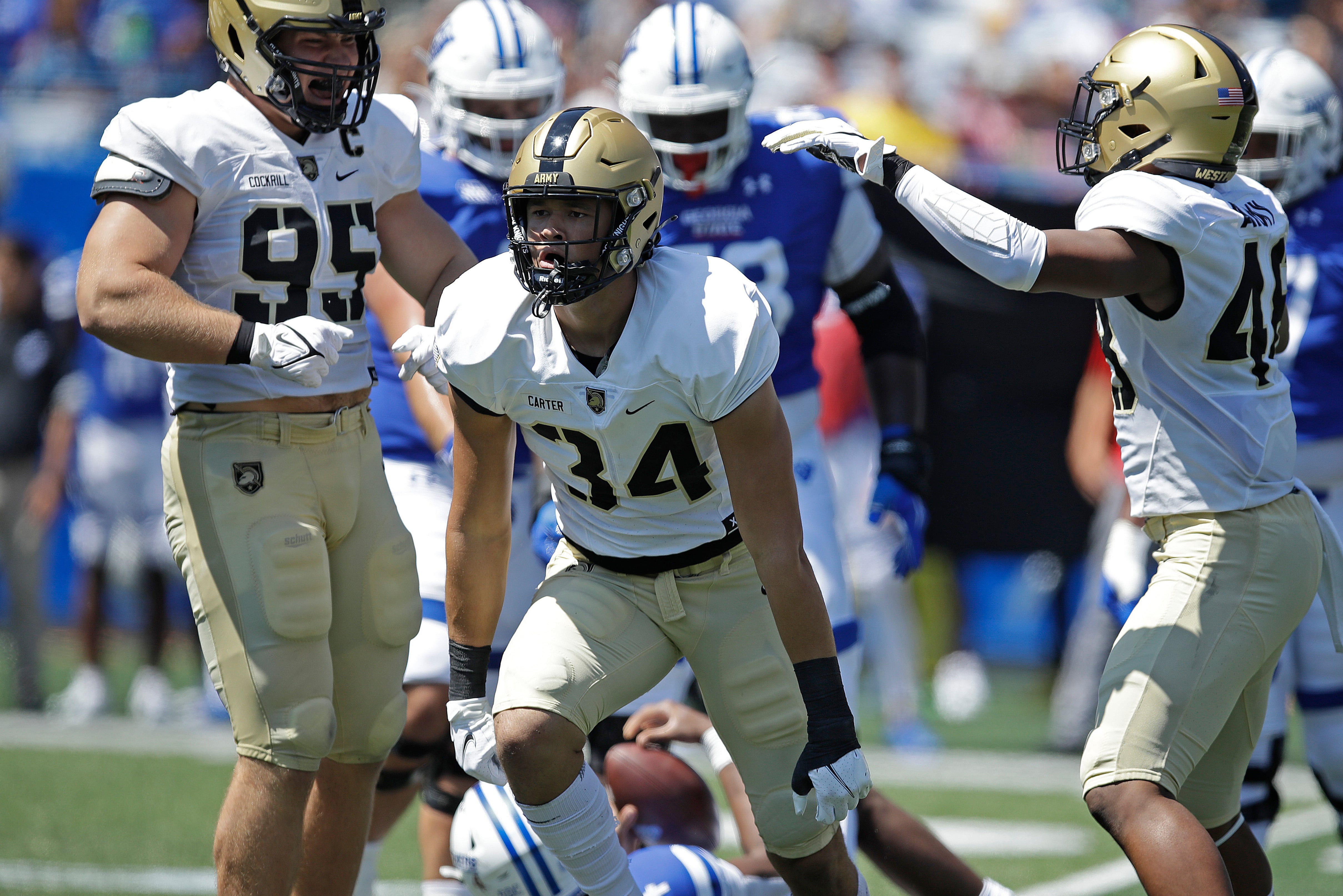Lawmakers are scrambling to tweak rules regarding whether military academy athletes are eligible to play professional sports after graduation following an outcry from legislation which may block an Army football star from a potential multi-million dollar career in the National Football League.
At issue is the future of Army linebacker Andre Carter II, who played his last game of collegiate football in last Saturday’s win over Navy. NFL scouts view Carter as a potential first-round draft pick and likely the highest pick ever from the U.S. Military Academy at West Point.
But Carter’s plans for a service deferment — a waiver that has been granted to come elite athletes from the military academies in recent years — were thrown into disarray last week when lawmakers included a provision in the annual defense authorization bill requiring two years of active-duty service before any such waiver could be granted.
RELATED

“Service academy appointments are a zero sum game,” lawmakers wrote in explanatory language for the bill. “Every appointment that goes to a graduate who does not complete his or her active-duty service obligation to pursue professional athletics could have been awarded to many other qualified young people who would have happily served their country.”
In an interview with ESPN on Friday, Carter’s family said the football standout was shocked and upset by the sudden change. Carter had contemplated leaving the academy to play football at another school after his sophomore year, but stayed out of loyalty to West Point.
“It’s just kind of pulling the rug out from under him,” Army coach Jeff Monken told ESPN. “It’s not fair. It’s not fair to him. He was loyal to this team and institution. He could have left and he didn’t.
“He still wants to serve. It’s not that he doesn’t want to serve. He wants to pursue the NFL and play, and then serve.”
Both the House and Senate passed the authorization bill with the two-year service requirement and the legislation could be signed into law by President Joe Biden in the next few days. The conflict over Carter’s case sparked frantic behind-the-scenes calls in recent days to the highest levels of Army leadership.
The service academies do allow deferred service for other non-athletic, non-military opportunities, such as the Rhodes Scholarship program.
Rep. Mike Gallagher, R-Wisc. and a Marine Corps veteran who served in Iraq, was among the primary champions of the provision requiring immediate service for sports stars.
Late Friday evening, he said in a statement that he is willing to look at carving out an exception in the rule for Carter.
“While I wish all service academy athletes who wish to go pro the best, the fact is U.S. military service academies exist to produce warfighters, not professional athletes,” he said. “By enrolling in one of these institutions, they took a spot from one of the thousands of other highly qualified Americans whose dream was to attend a service academy and serve their country in uniform.
“That said, I recognize that current athletes signed up with the understanding that they could apply for a waiver to defer their military service. I will be working with my colleagues to identify a legislative fix that addresses this issue by grandfathering in existing athletes into the current system.”
Language regarding a grandfathering clause could be inserted in the pending government funding omnibus, to be considered by Congress next week. Appropriators were evaluating possible provisions on Friday night.
The NFL draft is scheduled for late April. NFL scouts will likely need clarity on Carter’s eligibility well before then in order to feel comfortable recommending his selection to team officials.
ESPN experts have said that Carter could go to a team in need of defensive help that’s picking somewhere in the last half of the first round. In the 2022 draft, mid-first round NFL picks received four-year contracts worth between $12 million and $16 million.
Leo covers Congress, Veterans Affairs and the White House for Military Times. He has covered Washington, D.C. since 2004, focusing on military personnel and veterans policies. His work has earned numerous honors, including a 2009 Polk award, a 2010 National Headliner Award, the IAVA Leadership in Journalism award and the VFW News Media award.





